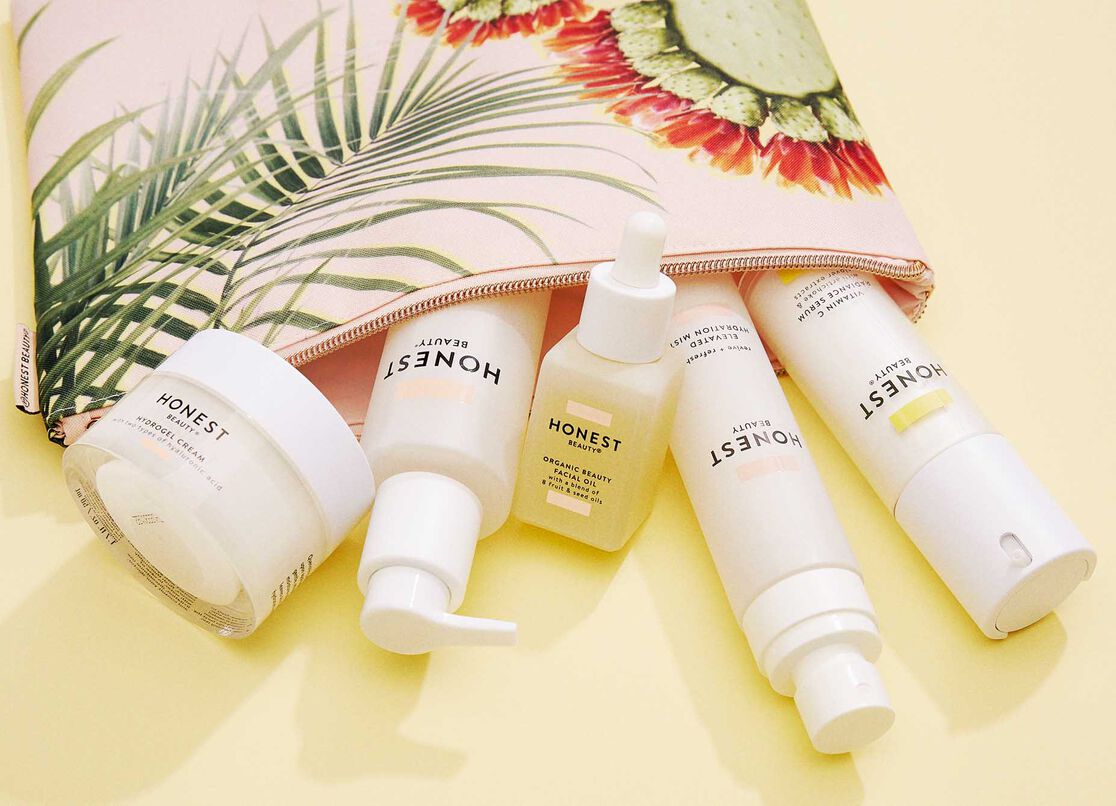Sulfates have gotten a bad rep in beauty with an increasing number of brands splashing sulfate-free on just about everything. They’ve even been on our NO List™. Still, we were curious — are sulfates all bad or is this hype all hearsay? When it comes to the ingredients in the products we make (and use ourselves), we leave no stone unturned. To set the sulfate record straight, we sat down with our in-house chemist Mallory in the Honest HQ Lab. Here’s the good, the bad and the ugly of sulfates in beauty.
First things first, what is a sulfate?
Technically (like, real technically), any ingredient containing a sulfur atom bound to two oxygen atoms is a sulfate. However, in the personal care industry, “sulfates” tend to be a general term for ingredients that are both water-loving and oil-loving, or amphiphilic, where the water-loving (hydrophilic) half uses sulfates. We call these surfactants or emulsifiers.
Why are sulfates in beauty products anyway?
With the exception of skin cleansers, sulfates are rarely found in skincare. Cleansing products — skincare or otherwise — use surfactants because their amphiphilic properties make them good at grabbing oil and washing it away. More than that, sulfates are often the reason cleansers foam up, which to a lot of us just makes it feel like the cleanser is doing a good job. Sometimes sulfates are used to help stabilize emulsions or in formulas with high levels of actives. However, that’s usually only when more robust stabilization is required.
Are sulfates bad for you?
No, actually. Sulfates aren’t bad for you, per se, but sulfate-based surfactants aren’t great for everyone. Despite their workhouse personality, they can come on too strong (read: drying) for sensitive skin. Sulfates bind with oil and grease on the skin to wash it away, but skin needs some oil to remain healthy. Skin oils are a tricky balance. When a sulfate-based cleanser overstrips natural oils, it can actually trigger more oil production, creating a vicious cycle from too dry to too oily and back again.
How can you avoid sulfates in your beauty routine?
Always read your labels! Outside of your face cleanser, you shouldn’t see any sulfates in the ingredient lists of your skincare products. If your skin is looking fab and feeling fab, you don’t need to switch out your face wash on account of sulfates. Stick to what works for your skin! BUT if your skin is too dry or too oily, it’s worth seeing if a sulfate-free cleanser helps. Give your skin enough time to adjust though! If, in fact, a sulfate cleanser has trained your skin to compensate for oil lost while cleansing, it’s going to continue overproducing oil for a while, even with the new cleanser, which might make your skin temporarily extra oily.
Doesn’t sulfate-free mean a safer product?
Not necessarily safer. It does mean a more gentle product that’s more suitable for a variety of skin types and less likely to strip away those precious oils. But remember, not everyone’s skin needs that. If your sulfate cleanser is doing its job without making your skin feel tight, dry or overly oily, why throw out a good thing just because of hype?
Which Honest Beauty cleansers are made without sulfates?
All of them! Honest Beauty cleansers are made without SLS/SLES. The only place sulfates belong at Honest Beauty is on our NO List™ — an ever-growing (and evolving with the research) inventory of ingredients we won’t use in any of our products, beauty or otherwise. Sulfates might be just fine for some skin types, but we don’t think they’re worth the risk for those more prone to their potential drying effects, especially when there are other alternatives that work just as well with a proven track record of safety. That’s the beauty behind clean beauty.
We aim to provide you with the most honest and credible information possible. This article was reviewed for accuracy by The Honest Team and was written based on sources that are linked at the bottom of the article.
blog_review_statement








